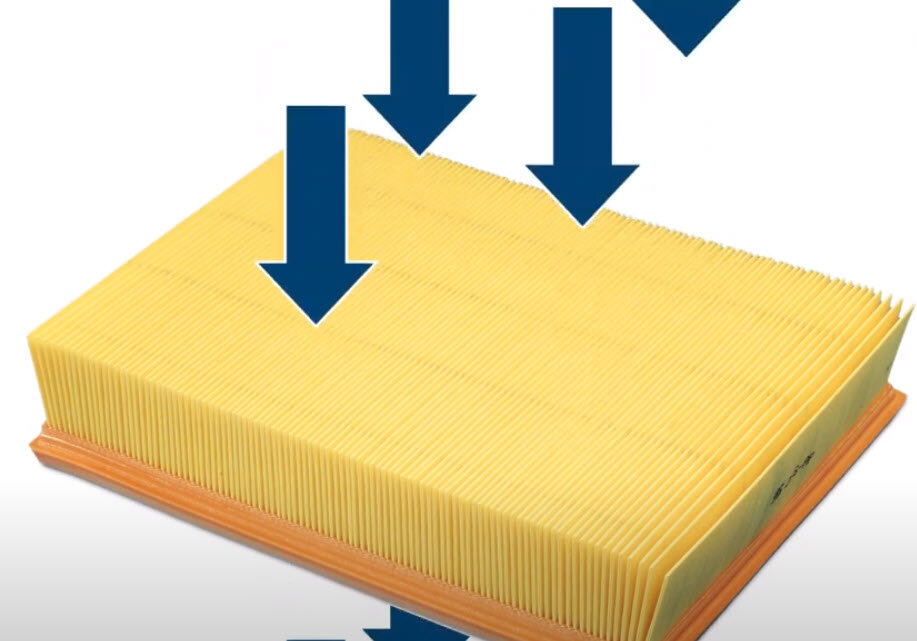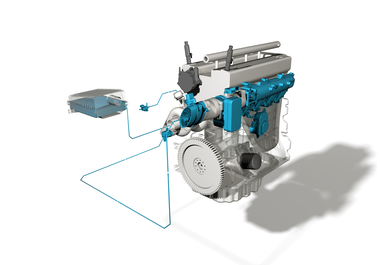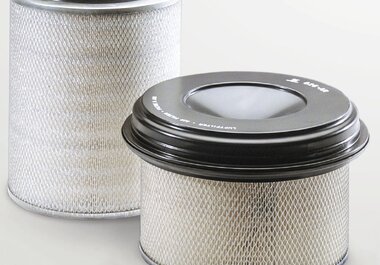
Cleaning the air filter: beating or blowing out method?
Information on the product
How effective is the process of cleaning air filters? Is it better to blow out and beat out an air filter, or is it more sensible to replace it straight away? What risks are inherent in cleaning air filters? Find out here.
Dry filters made of paper are often used to filter the intake air. The air flows through them. The dirt particles contained in it are caught using a fine-pored surface. If a lot of dirt is caught in an air filter, the air flow will be reduced, and with it, the performance of the engine. Therefore, air filters should be replaced regularly. However, in practice, users often attempt to extend these change intervals by cleaning the filters. To see how effective the cleaning process is, we have tested it on a combine harvester’s air filter as an example.
The test
The air filter, which weighs 3.395 kg when new, weighed 4.245 kg when removed after four days of threshing. So 0.85 kg of dirt was caught in the filter. Beating the filter out loosened 412 grams of dirt. Blowing it out increased the amount to 668 grams. Even after both methods were applied, some dirt therefore remained in the filter, further reducing the air flow.
What’s more, these cleaning methods come with risks:
Beating out the filter can deform it so that it no longer seals properly, allowing unfiltered air into the engine. Blowing it out carries the risk of creating small cracks or holes in the filter paper. This also destroys the fine-pored structure of the filter paper. As a result, the filter can no longer trap the dirt, and the air flow is reduced due to the clogged filter medium. This results in reduced performance. In the worst-case scenario, the filter paper will tear due to the increased differential pressure on the filter.

